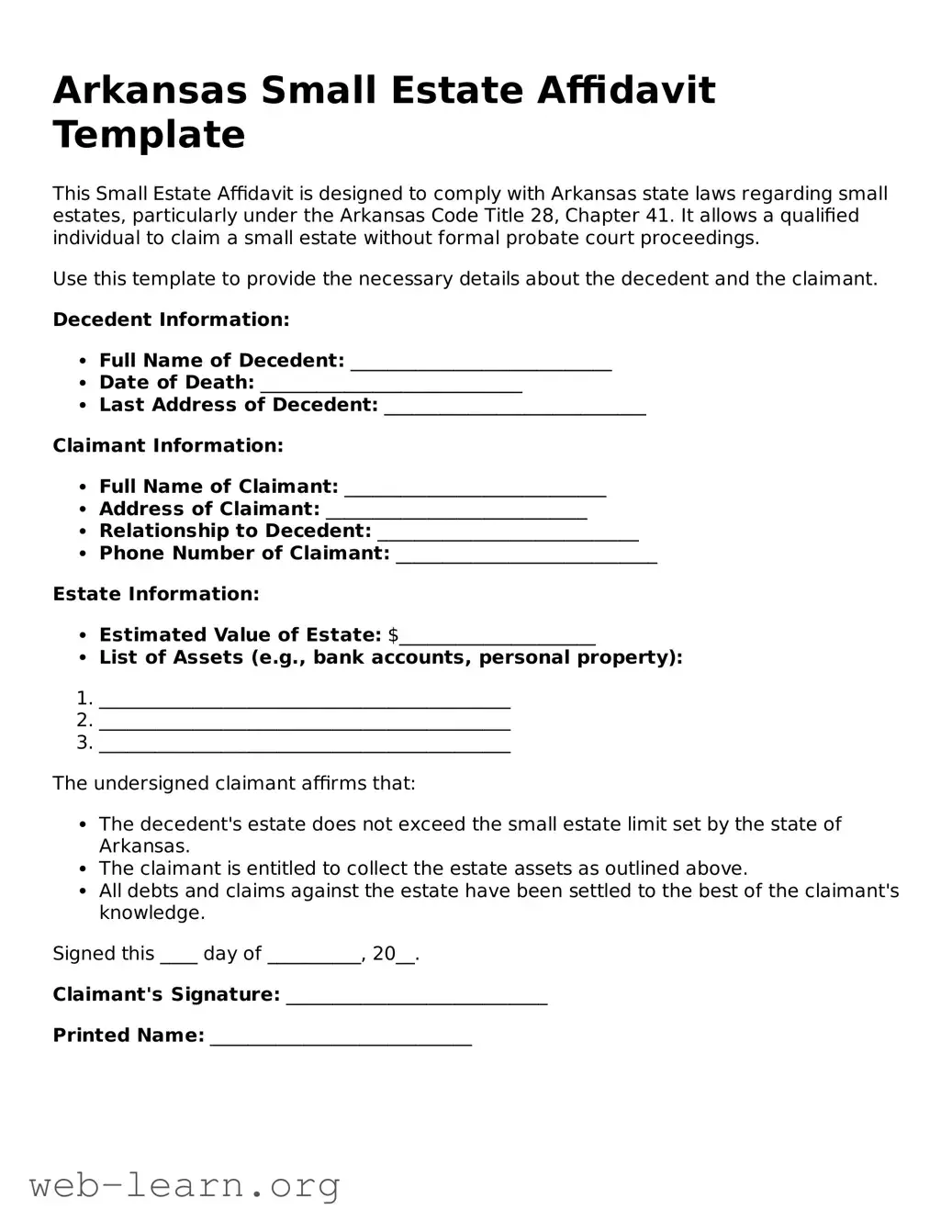When navigating the Arkansas Small Estate Affidavit process, many individuals encounter pitfalls that can jeopardize the efficiency of settling an estate. Among the most common mistakes is failing to accurately assess the estate's value. In Arkansas, the Small Estate Affidavit can only be used for estates valued at $100,000 or less, excluding certain property types. Underestimating or overestimating this value can lead to complications, including potentially disqualifying the estate from the small estate process.
Another frequent error involves not naming all necessary heirs. The form requires that all heirs, as defined by Arkansas law, be identified. Omitting even one heir can delay proceedings or create grounds for future disputes. This oversight often stems from a misunderstanding of who qualifies as an heir, especially in cases with blended families or where there are adopted children.
Inaccurate information can plague the Small Estate Affidavit. Errors in the deceased’s name, date of death, or property details can result in critical delays. It’s essential to double-check every piece of information before submission. Claiming ownership of property that was never possessed by the decedent can further complicate matters.
Completing the affidavit too hastily is another common misstep. Some individuals might rush through the process, eager to settle the estate swiftly. This hurried approach often leads to incomplete forms or the absence of required signatures. Patience and attention to detail can save significant time and heartache down the line.
Additionally, neglecting to have the affidavit notarized is a crucial error. The state requires that the affidavit be signed in front of a notary public. Failing to fulfill this requirement can render the document invalid, requiring individuals to restart the entire process. A notarized form adds an essential layer of authenticity and legal verification.
Some people mistakenly believe that court oversight is unnecessary with the Small Estate Affidavit process. While this is a simplified method, certain steps still require careful execution to ensure everything is handled correctly and legally. Individuals should be aware of their responsibilities in following the state's legal procedures.
Understanding the timing of submissions is also vital. Submitting the affidavit prematurely can result in complications, especially if the estate has unresolved debts. Filing too late may lead to penalties for failing to pay any owed debts and can impact the distribution of the remaining assets.
Finally, misjudging the necessity of professional assistance can lead to complications. Many individuals feel confident enough to fill out the Small Estate Affidavit independently. However, enlisting the help of a legal professional experienced in estate matters can make a significant difference. Expert guidance can illuminate potential pitfalls and enhance the likelihood of a smooth, successful process.
